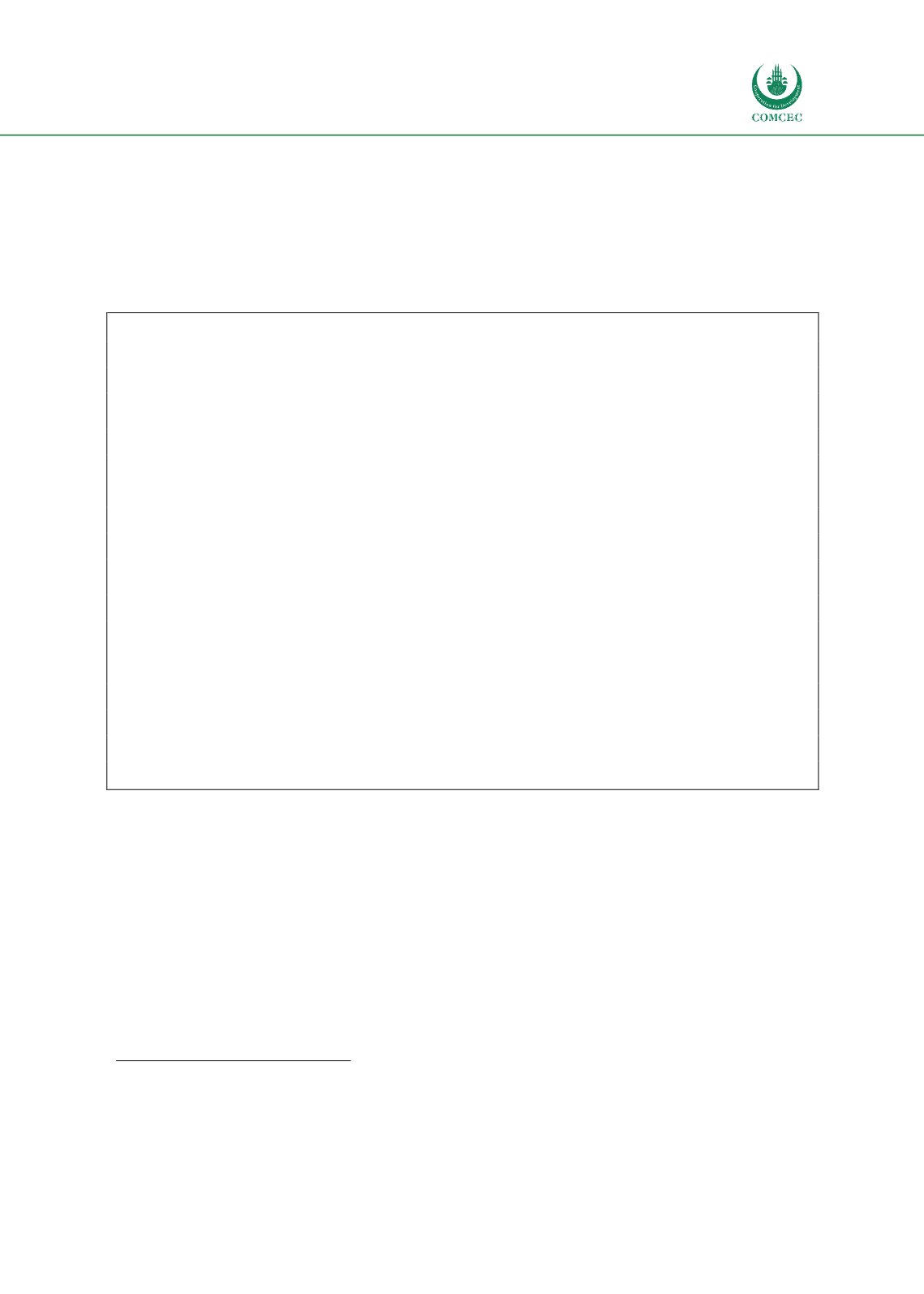

Improving Customs Transit Systems
In the Islamic Countries
43
Customs system and the interoperability of blockchain, the harmonization of blockchain as well
as the quality of data
40
. In 2018, WCO published the Research Paper No. 45 “Unveiling the
Potential of Blockchain for Customs,” identifying possible case studies and uses of blockchain
for Customs purposes.
Box 3: Saudi Customs and Singapore GSBN Blockchain projects
Maersk and IBM
have implemented the TradeLens blockchain digital platform that provides
traders and authorities along in the supply chain with a single, secure source of shipping data,
enabling more efficient global trade. According to the IBM statistics, over ten million events are
processed on a weekly basis
41
.
At the beginning of 2018,
Saudi Customs
announced it had integrated its EDI system FASAH
with IBM and Maersk’s TradeLens blockchain platform. FASAH aims to enable data exchange
between the Saudi Customs department and importers and exporters. In August 2018,
TradeLens, the platform for digitizing the global supply chain went live. Like many blockchain
projects initially, the platform had limited early access but became commercially available in
early January 201942.
Port of Singapore Authority
is participating in both TradeLens and the Global Shipping
Business Network (GSBN) and is also part owner in the Open Trade Blockchain (OTB) which
was launched at the end of 201843.
Additionally, the world’s largest shipping freight forwarder Kuehne + Nagel is working on a
logistics blockchain project with Accenture. EU DG TAXUD also considered the blockchain
technology to boost the global trade, and at the same time, provide authorities with a secure and
reliable data layer.
2.1.7
Integrated Risk Management
The increased volume of international trade also increases opportunities for evasion and fraud
in an increasingly sophisticated and organized international manner. International security
risks also increase due to international terrorism. Governments increasingly use risk-based
compliance management for Customs or other purposes such as goods’ safety and protection
from these risks.
Governments have to ensure that goods entering, exiting, or transiting their territory comply
with the regulatory requirements in the area of trade policy, revenue collection, transport, and
40
http://www.wcoomd.org/en/media/newsroom/2018/november/digital-technology-and-customs-discussed-at-the-global-trade-2018-conference-in-london.aspx
4
1 https://www.tradelens.com/?utm_source=Blog&utm_medium=In%20Text&utm_campaign=TradeLens%20Announce42
https://www.customs.gov.sa/en/node/102243
https://www.ledgerinsights.com/container-shipping-blockchain-consortium-cargosmart/















